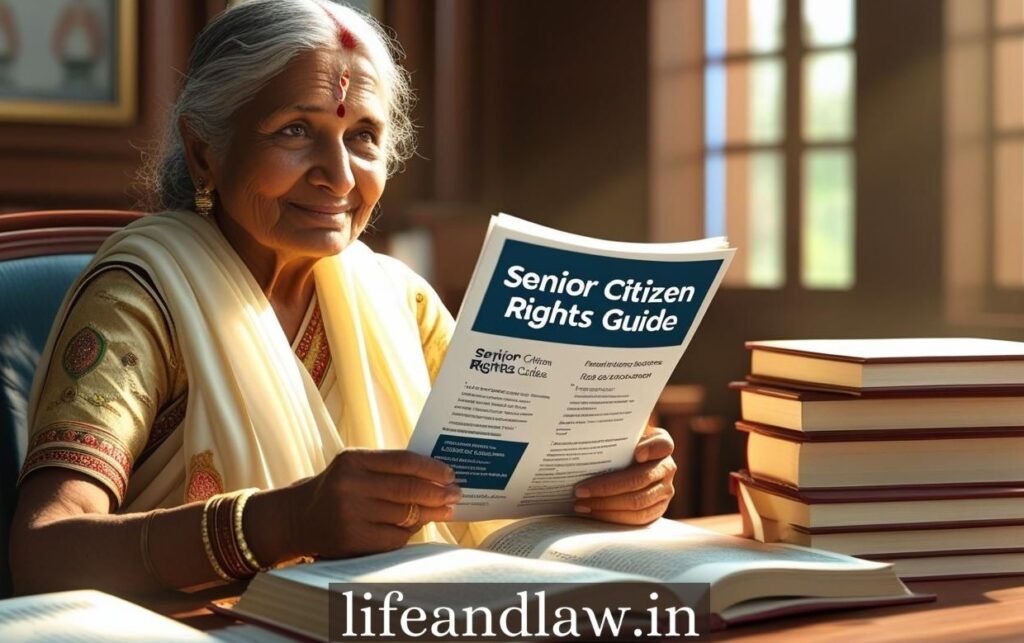Trending

Every year on June 15, the world joins together to commemorate World Elder Abuse Awareness Day, a day dedicated to recognizing and addressing the silent suffering of millions of older people who are abused, neglected, or exploited. As the world’s population ages, senior individuals become more vulnerable, often in their own homes or in care institutions. Despite their lifelong contributions to society, many elderly are denied respect, safety, and legal protection.
This article seeks to examine the issue of elder abuse through a legal lens, focusing on relevant Indian laws, judicial responses, enforcement challenges, and the urgent need to create a safer, more respectful environment for the elderly. This article aims to empower citizens by improving understanding of their legal rights, allowing them to notice, prevent, and respond to elder abuse.
Elder abuse is defined as any act, intentional or careless, that causes injury or suffering to an elderly person. According to the World Health Organisation (WHO), it can take several forms:
Physical abuse – Causing pain or injury
Emotional or psychological abuse – humiliated, threatened, or isolated
Financial exploitation – Unauthorized use of an elder’s possessions or funds
Neglect – Failure to offer care.
Abandonment or institutional abuse – Neglect in hospitals or elderly homes
Such abuse is often inflicted by those closest to the elderly— family members, caretakers, or trusted individuals—making it much more difficult to report or fight.
This groundbreaking legislation was passed to give older people the right to live with dignity.
The key provisions include:
Right to Maintenance: Children or legal heirs are required to pay monthly maintenance.
Maintenance Tribunals: These can receive complaints and issue repair orders (up to ₹10,000 per month).
Eviction from Property: Senior citizens can take back their property from abusive children or caregivers.
Speedy Process: Tribunals are intended to resolve cases within 90 days.
The Act empowers senior citizens, however it is not enforced effectively and is not widely known.
While the BNS does not explicitly define elder abuse, many of its sections can be used to prosecute abuse-related crimes.
Section 115 – Voluntarily causing hurt
Section 316 – Criminal breach of trust
Section 318 – Cheating and dishonestly inducing delivery of property
Section 351 – Criminal intimidation
These legal measures are critical when abuse develops into violence or financial fraud.
Protection of Women from Domestic Violence Act, 2005 – Can be utilized by elderly women who have experienced abuse at home.
Legal Services Authorities Act, 1987 – Senior citizens are eligible for free legal aid.
State-level Welfare Schemes – Many states have senior citizen hotlines, old-age homes, and pension plans.
In the case of Sunny Paul v. State NCT of Delhi (2018), the Delhi High Court ruled that elderly parents can evict abusive adult children from both self-acquired and rented property. The court also directed the government to amend rules for broader protection. This decision aligns with the message of World Elder Abuse Awareness Day, emphasizing legal safeguards against domestic elder abuse.
Regardless of these laws, real-world issues continue:
Elders have low awareness about their rights.
Social stigma – fear of public shame or isolation
Delayed legal procedures
Limited access to tribunals and legal aid.
Insufficient government oversight of elder-care homes.
To truly safeguard the elderly, legal reform must be combined with social transformation:
Strengthen execution of the 2007 Act.
Prepare police and medical personnel to spot abuse.
Increase legal literacy through community outreach and workshops.
Use technology – helplines, smartphone apps to report abuse.
Promote family values and intergenerational respect through schools and media
Elder abuse is more than a social issue; it is a legal one that requires immediate attention. As we commemorate World Elder Abuse Awareness Day, it is critical to emphasize that senior individuals’ rights do not diminish with age. Legal frameworks, such as the Maintenance and Welfare of Parents and Senior Citizens Act of 2007, exist to protect the elderly, but their effectiveness is dependent on public knowledge, prompt action, and societal support. It is our joint responsibility to guarantee that the elderly receive the respect, care, and legal protection that they deserve.
If you or someone you know requires legal aid with elder abuse, property disputes, or maintenance claims, you can contact Adv. Abdul Mulla, a dedicated legal practitioner with extensive knowledge in elder law and social justice. For further information, see the http://www.lifeandlaw.in, which provides free legal aid, and the http://www.asmlegalservices.in. Foundation, which promotes human rights. Let us remember that rights do not age; only bodies do.
Adv. Abdul Mulla (Mob. No. 937 007 2022) is a seasoned legal professional with over 18 years of experience in advocacy, specializing in diverse areas of law, including Real Estate and Property Law, Matrimonial and Divorce Matters, Litigation and Dispute Resolution, and Will and Succession Planning. read more….
Copyright BlazeThemes. 2025